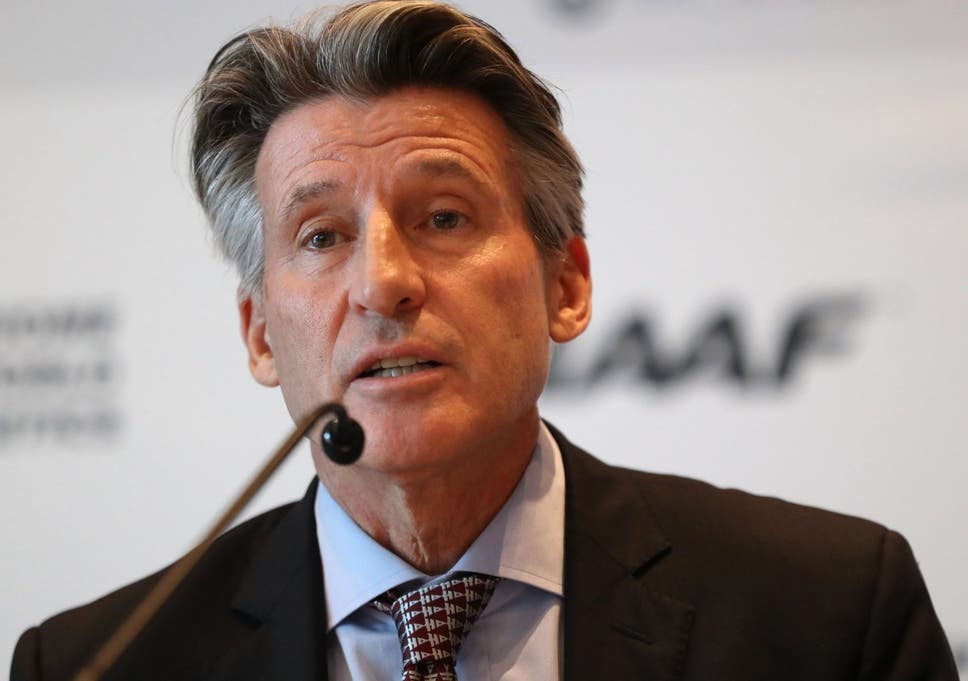Too Early to Call Off Tokyo Olympics-Lord Coe

It is too
early to decide whether to cancel the Tokyo 2020 Olympics, says World Athletics
chief Lord Coe.
The
International Olympic Committee has said the Games could still begin on 24
July despite the coronavirus pandemic causing other events to be
cancelled.
Coe told BBC
Sport: "Let's not make a precipitous decision when we don't have to four
months out."
However, he
added: "If you had to ease that date, you'd have to ease it. It is
possible. Anything is possible."
Speaking on
the Today Programme on BBC Radio 4, Coe, who was chair of the London
2012 organising committee, also said: "Events are changing by the hour but
it is not a decision that has to be made at the moment.
"We're
trying to manage the situation with the information we have but there is not a
great deal of information.
"The
temperature in the room with the IOC is, nobody is saying we're going to the
Games come what may."
The IOC says
it held "constructive" talks with athlete representatives about
the coronavirus crisis earlier this week.
President
Thomas Bach admitted he was "confronted with many questions" over qualification
and restrictions but insisted that "everybody realised that we still have
more than four months to go" until Tokyo 2020.
The British
Athletes Commission said on Thursday that the situation was "significantly
impacting the preparation of athletes" for the Games.
"We
encourage information to be made readily available and that timely decisions
are made in the best interests of athletes," the BAC statement added.
On Thursday,
Tokyo 2020 organisers received the Olympic flame in a scaled-down ceremony in
Athens' Panathenaic stadium, site of the first modern Games in Greece in 1896.
The flame
was then transferred into a small holder to travel to Japan on a special
aircraft named 'Tokyo 2020 Go.'
In a video
message Tokyo 2020 organising chief Yoshiro Mori said he hoped the flame's
arrival would help "shake off the dark clouds hanging over the
world".
When asked
about the prospect of pushing the Olympics back a year to 2021, Coe replied:
"It seems on the surface an easy proposition but athletics has its worlds
on that date, the Euros in football have been moved back a year.
"The
sporting calendar is a complicated matrix and it is not easy to move from one
year to the next. It would be ridiculous to say anything is ruled out at the
moment. The whole world wants clarity; we're no different from any other
sector.
"In
athletics we've postponed three Diamond League meetings but not all, because we
don't have to make that decision. Everybody accepts this is a fast-moving
environment. I need to be careful I'm not removing the earning potential from
athletes any more than I need to at this moment."
In contrast
to Coe, former Olympic champion rower Sir Matthew Pinsent said he did not see
"much of a choice" but to postpone or cancel the Games.
"I just
think there are bigger things to worry about at this stage on a global
front," Britain's four-time Olympic gold medallist told BBC Radio 4.
"For
most of the European countries as well as Asian countries, organised sport in
any meaningful way has ceased, and that's from government advice. I don't see
there's any way forward for an Olympic athlete to train effectively - even as
an individual, but particularly in a team environment.
"Obviously
I came from rowing, and rowing squads around Europe and the world are
essentially downing tools and going into lockdown as their individual
governments are mandating that they should - I just think it's unfair.
"It's
unfair for the Olympics to say we're going to carry on. There are the two big
forces in an Olympic athlete's life, which is the Olympics and everything else.
And those two things are pulling in different directions at this moment."
Asked why he
felt the IOC was insisting the Games would go ahead, Pinsent added: "I
think they feel a responsibility to Tokyo.
"We
know having hosted in 2012 that seven-year build up is a crescendo of energy
and concentration and effort on behalf of the city and on behalf of the nation
and the government. Everybody takes a pride in it.
"I know
that Tokyo have done exactly the same and actually the financial stakes are
much higher for the host city than they are for the IOC."
Meanwhile
British race walker Tom Bosworth has told BBC Sport that the Olympics should be
put back until the autumn.
"It
would be a very tough one but in my opinion I think it should be postponed to
allow everybody to qualify, to allow the build-up to be correct for what should
be a really great and really successful Olympic Games," he said.
"If I'm
honest I don't think there is enough time to properly build towards a Games,
whether that is build athlete profiles, build the teams, allow people to
qualify who haven't qualified. I think for all involved a slight delay is
probably the best option."
FROM .bbc.com/sport/olympics

No comments